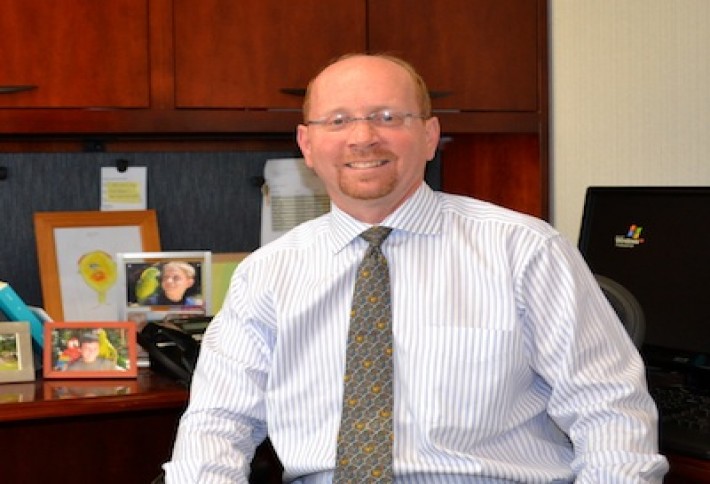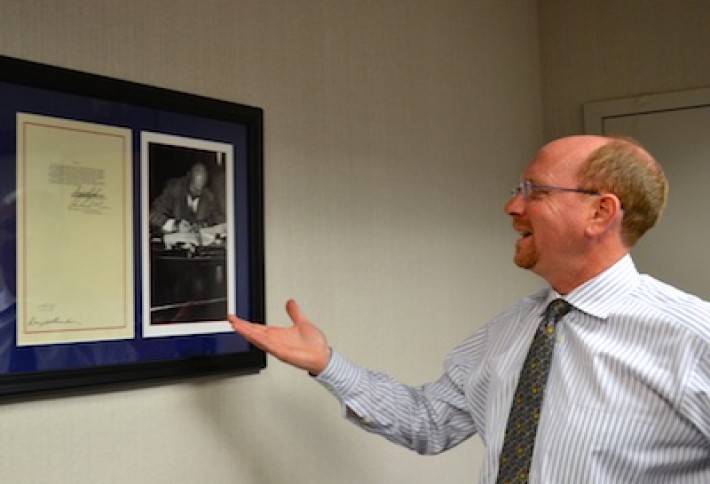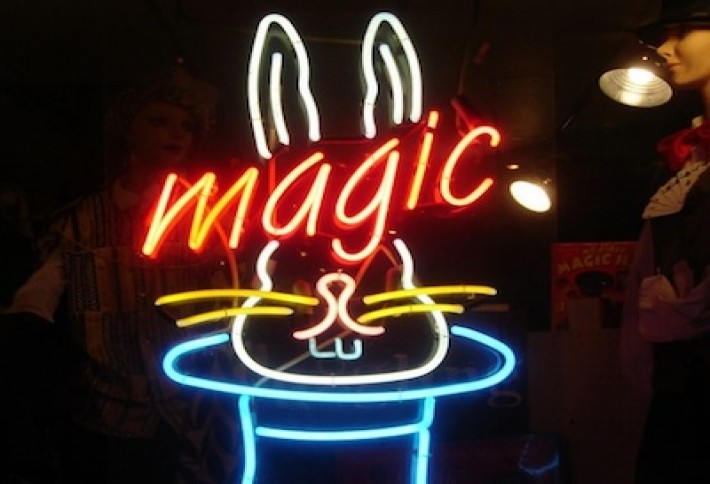Stepping Down: SBA's Startup Cheerleader

Sean Greene, SBA's first investment and innovation associate administrator, spent three years fixing the biggest challenge startups face: finding money. Now it's time to move on. His successor will be chosen when a puff of white smoke emerges from the Silver Diner.
In 2010, the SBA got more SBIC capital into the hands of entrepreneurs than in any year in the entire 50 years of the program. (SBIC licenses and regulates private funds that use borrowed SBA money to make equity and debt investments in small companies.) 2011 was even better and 2012 was 80% above 2010, putting close to $2 billion into the funds. The firms then put over $3 billion into small businesses. On Sean's watch, the SBA cut the time it takes to license one of these private funds from 15 months to five.
Hanging at SBA HQ is a picture of President Eisenhower signing SBIC into law in 1958. Since then, the program has funded startups like Costco, Intel, Fedex, and Apple (despite Eisenhower's fear of a miltary-iDunstrial complex). Its twin, SBIR, funds R&D efforts at innovative tech companies. At least $2.5 billion goes to small businesses. Sean, who started Away.com and sold it to Orbitz, says he also got the agency heavily involved in the Startup America Partnership, bringing more attention to supporting high-growthentrepreneurship. RFP-EZ was also launched by the Presidential Innovation Fellows at the request of SBA to make it easier for small businesses to bid for government work.
SBA's next investment and innovation director will need to push a broader set of issues that affect entrepreneurs beyond SBA, says Sean. That includesmore visas for people getting STEM degrees and work on new crowdfunding regs, says Sean. He hasn't decided what's next, but he'll surely have time for magic. He's been doing tricks here and there for his kids (ages 13, 11, and 6), as well as for charity events and SBA functions. After selling his startup, the Massachusetts native became a seed stage investor. One thing he's learned in DC and other tech hubs is that regions need to embrace and perfect what they're good at. "It's not about becoming the next Silicon Valley." In DC, it's about a broad range of industries like education, clean energy, and media.



